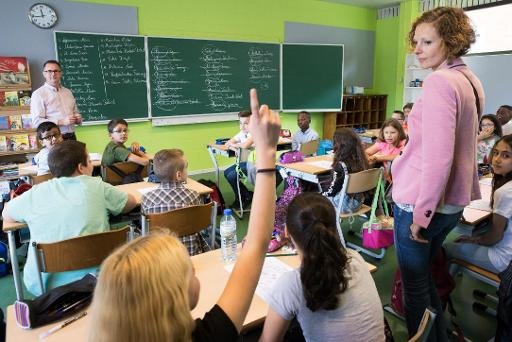There is an indication of the growing difficulty to find foreign language teachers in the Wallonia-Brussels Federation. One quarter of the staff taken on to deliver these lessons either entirely lack the required qualifications, or have insufficient qualifications for the role.
This shortage is particularly marked within lower secondary education. In this category, the number of new foreign language teachers taken on, even without ad hoc training, reached 27% according to statistics collected at the beginning of 2017. These revolved around language teachers with a maximum of one years’ service to the profession.
On Thursday, the Minister for Education, Marie-Martine Schyns (cdH), said, “This is a real warning signal to the profession.” She delivered this figure during a debate by the Wallonia-Brussels Federation parliamentary committee on the recently-announced eduational reform. This relates to the core school curriculum, and the elaboration of school timetables which will flow from it.
The phenomenon is not unique to the secondary-school sector. Equally within primary schools, more than 22% of new foreign language teachers are taken on with levels of qualifications deemed to be “lacking”. Within the secondary sector, the equivalent figure falling within this category is 17.5% of new teachers hired. Such teaching recruits have qualifications in various pathways (including, amongst others, communications and media and political sciences).
The lack of language teachers with the appropriate required qualifications, or with insufficient qualifications, is almost equal in number for the Dutch and English language in both the primary and lower secondary sectors. That having been said, within the upper secondary sector, it is particularly for lessons in Dutch and German that school heads prove to be less stringent with their selection process in this sphere.
Faced with this situation, Minister Schyns particularly intends to encourage teaching secondments between Flanders, the German-speaking community and the Wallonia-Brussels Federation. A programme put in place a few years ago to encourage this mobility between the various communities in Belgium has, however, so far only met with modest success.
Ms Schyns champions a further solution, which is to enable greater levels of mobility of foreign language teachers, between the primary and lower secondary sectors. The reform of the initial teacher training system, which has been announced, may also serve to tackle this problem.
The Brussels Times

